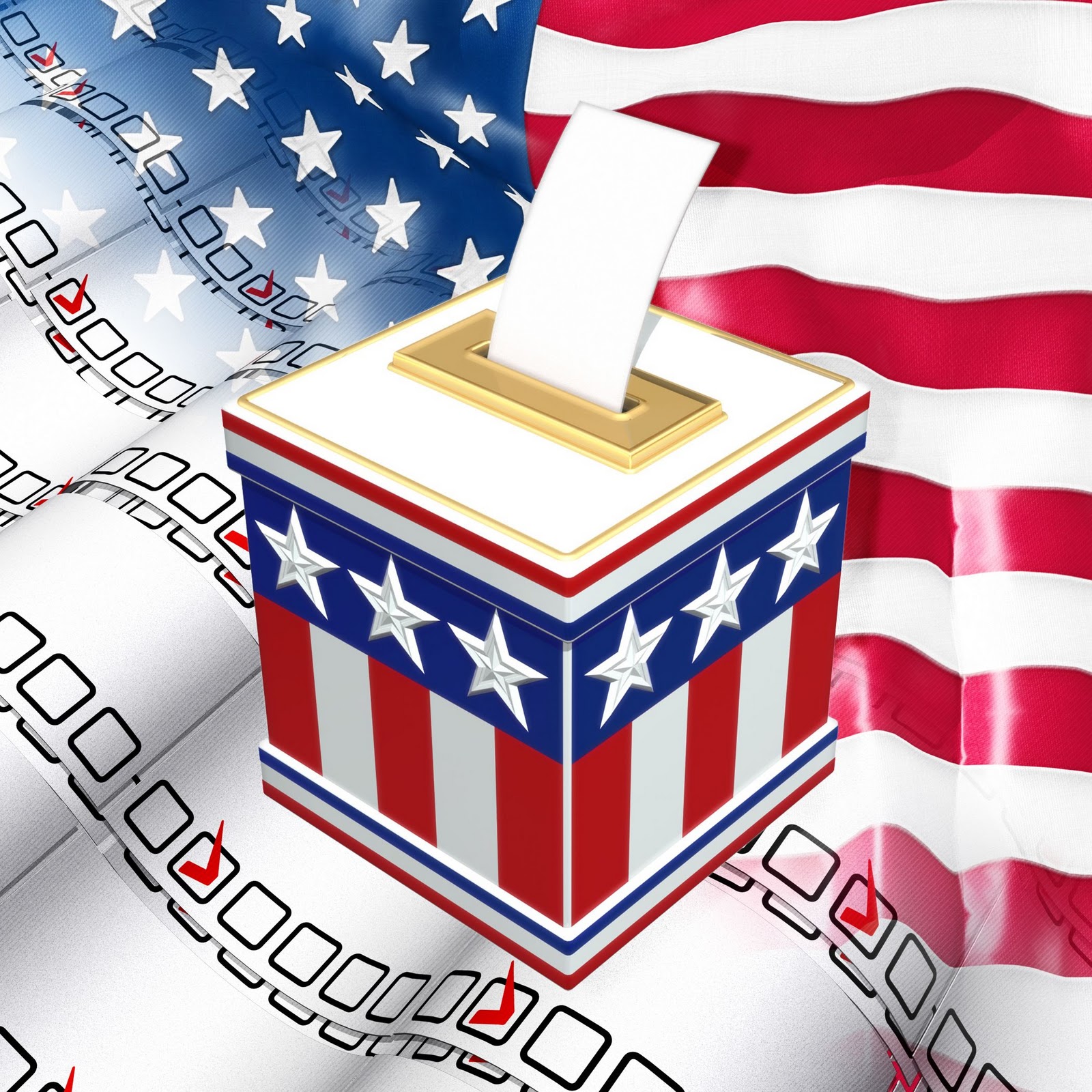20 de enero de 2016
2016 election: the major decision
Por: Natalia Castiblanco.
In the middle of the Colombian peace process and the terrorist attacks in Paris, the 2016 US elections and its main topics such as foreign policy, immigrants’ rights, same-sex marriage, national security and health care, are a major concern for many countries and the international system itself. Within the situation, not only political parties and its candidates but press and journals have already taken a position.
In order to comprehend the game rules and importance of the situation we must define terrorism as the succession of violent, premeditated acts characterized by inducing terror in the civilian population. When these strategies are used by a consolidated government it is defined as state terrorism. Equally, it is important to define the Fourth Estate as a concept that tries to represent the press (newspapers and journals) as a fourth branch of power and its importance to a functioning democracy.
The players
Inside the Democratic Party, bets are clear and primary voters have already made up their minds. According to a recent article published by CBS News, Hillary Clinton has 52% of support from her party, followed by Bernie Sanders with 33% and Martin O’Malley with 5%. During the last 4 decades of elections, the national endorsements have represented the best predictor of a party’s nominees. As reported by The New York Times in their latest Presidential Campaign study, political elites have demonstrated to have a better sense of which candidates can endure a longer campaign: as of November 17th Hillary Clinton has received support from 9 governors and 142 congress members while Bernie Sanders has received support from no governors and only 2 congress members.
On the other hand, Republican Party nominees represent a big confusion for primary voters. Before Tuesday, there were 16 nominees for the party election, all with conservator, mediating opinions that do not make a huge difference to amongst them. Before summer, as stated in the US news article, Jeb Bush was the strongest candidate with 17% of support but by November 9th he was already under 5%. It has been a crazy race, on Tuesday 17th, Bobby Jindal a son of Indian immigrant parents who has pursued health and education projects as Louisiana’s governor, dropped the presidential race saying to FOX News “I’ve come to realized it’s not my time”. As for now, the main candidates could be Marco Rubio, Ted Cruz, Jeb Bush and Donald Trump, all of them with variable opportunities to go up inside the Republican Party election but most likely not to deal with Clinton from the Democratic Party.
The Wall Street Journal pronounced itself by highlighting the turbulence inside the Republican Party, it mentioned how this confusion has turned the presidential campaign down and how inside the party there is only one question: To fight or to govern? As a historical fact, the article reminds the readers how Republican Party has most likely intended to defend passionately and even angrily conservative principles. The article is closed by saying that the republican voters are frustrated. No words.
The geographical interest
During US elections the geographical weapon plays a huge role. The primary election -which is the one that choses a party candidate to represent the whole party in the general elections- and the final one is mostly based on the number of electoral colleges that each state has. In line with the US government archives, California -with 55- and Texas -with 32- are the ones that have the largest amount of electoral colleges. According to the last voting decades, California normally goes to the Republican Party and Texas to the Democratic one.
The check book significance
According to Timothy Garton’s article published by La Nacion, election expenditures in 2016 will exceed by 6000 million USD those of 2012. During the first semester of 2015 alone, over 400 million dollars have been collected. From the Democratic Party it is Hillary Clinton who leads the money raised list with 97.7 million dollars; as for the Republican Party, Jeb Bush is leading with 133.3 million dollars.
The candidates’ money is not the only financial concern though. Taxes and wages are a main subject for voters: the Los Angeles Times made this clear by opposing, in one of their latest articles, all of the politics that the Democratic Party candidates have proposed such as raising California’s cigarette tax by $2 a pack, or increasing the tax-payer subsidized prescription drugs. As mentioned in the article, this may confuse and fatigue the voter, dissuading him from participating: it might become a catastrophe to vote inside Democratic Party.
‘General minorities’ and the main subjects
Since April 2014, each candidate has exposed its own political programs and opinions based on the most important topics during the race. All along the last months one the major topics have been immigration politics and minority rights, such as same-sex marriage and child care. Media and main journals have also pronounced their selves about the candidates and their programs on these issues.
In terms of decision making, the Wall Street Journal has mentioned how, for the past generation, the Republican Party has grown more conservative, more downscale economically and older, as the Democratic Party has grown more liberal, younger, more urban and demographically diverse with multiple activists. Nevertheless, the New York Daily News has also talked about parties and it doesn’t show off the same face. One of its latest articles features the incredible low ratings (8.3 million) of the last Democratic debate: it focused mainly on the Paris terrorist attacks and national security, but the article mentions how most of the democratic voters are sure about Clinton winning the party’s convention: they see as unnecessary to watch this type of debates when the results seem to be known in advance. As a comparison, the article highlights the 15.3 million people who tuned into the Republican Party’s first debate on October 13th.
In topics such as health care and minority rights (including refugees and same-sex couples), publications such as Time and the Chicago Sun Times have mentioned how good is the Democratic party going in those topics, by promoting women’s liberal rights and a very intense state expenditure in order to protect minorities. On the other hand, the New York Times and CNN have criticized how religion is influencing the Republican Party and not allowing voters to choose freely, apart from creating aggressive responses to Paris attacks.
The final point
Although the general election will be held in November 8th 2016, the first primary elections are less than 3 months away, starting with Iowa in February the 1st and New Hampshire in February 9th, finishing in June 14th with the District of Columbia. Taken from all the different articles and positions, it can be concluded that this election process should be followed in order to comprehend the future strategies and policies that will define the outcome in important topics such as the war against terrorism, in the months and years to come.
Referencias El Libre Pensador:
USA Today – Poll: Clinton, Trump strongest on dealing with terrorism.
US News – Bobby Jindal Drops Out.
CBS News – Poll: Hillary Clinton maintains lead among Democrats.
La Nación – La locura de ver tanto dinero en acción para una campaña electoral.
CNN – Paris attacks become focus of 2016 race.
NBC News – Syrians in America Reside In Mostly Democratic States.
Time – Why Child Care May Get More Attention in 2016.
Time – Hillary Clinton Wins Major Endorsement From the SEIU.
The Atlantic – The 2016 U.S. Presidential Race: A Cheat Sheet.
New York Times – Republican Candidates Urge Aggressive Response After Paris Attacks.
The Telegraph – US election 2016.
La Nación – Dinastías en picada: Ni Jeb Bush ni Hillary Clinton enamoran a los votantes.
US Politics About – All About the 2016 Presidential Election.
Los Angeles Times – California’s ballot could be a blockbuster next November.
New York Times – It’s Easy to Overestimate Effect of Paris Attacks on 2016 Race.
El País – Por qué Estados Unidos no ofrece bajas por maternidad remuneradas.
CNN – Who’s winning the 2016 GOP money race?
The Wall Street Journal – Republican Party’s Big Question: To Fight or Govern?
The Wall Street Journal – The Two Parties Aren’t Crazy, Just Changed.
The New York Times – Who’s Winning the Presidential Campaign?


